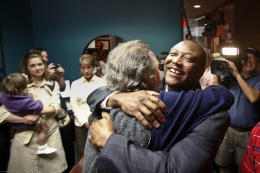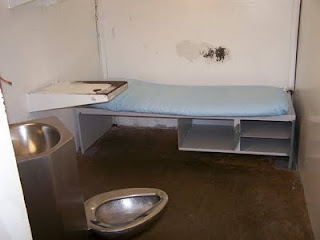From the AP, Saturday, November 13th, 2010:
Antonin Scalia, 74, the longest-serving current justice, appointed by Republican President Ronald Reagan, and Stephen Breyer, 72, appointed by Democrat Bill Clinton, shared the stage in front of a crowd of thousands during a West Texas event organized by Texas Tech University Law School.
They particularly clashed on the question of capital punishment.
Scalia argued that while there’s room for debate about whether the death penalty is a “good idea or a bad idea,” it is not cruel and unusual punishment.
“There’s not an ounceworth of room for debate as to whether it constitutes cruel and unusual punishment because, at the time the Eighth Amendment was adopted — the cruel and unusual punishments clause — it was the only punishment for a felony. It was the definition of a felony. It’s why we have Western movies because horse thieving was a felony.”
Breyer said 200 years ago, people thought flogging at a whipping post was not cruel and unusual.
“And indeed there were whipping posts where people were flogged virtually to death up until the middle of the 19th century,” he said. “If we had a case like that today I’d like to see how you’d vote.”
The two bandied about other issues, including Brown vs. The Board of Education, the landmark high court decision in the 1950s that outlawed school segregation case, cable television rulings, and how they view cases that come before them.
Later, Scalia returned to the issue of flogging, saying it’s “stupid” but “not unconstitutional, which is stupid. There’s a lot of stuff that stupid that’s not constitutional.”













